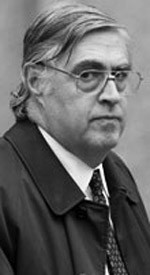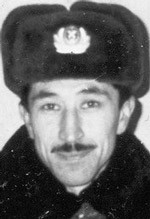Supreme Court wonderland
 Roger Fitch Esq •
Roger Fitch Esq •  Monday, June 21, 2010
Monday, June 21, 2010 Modifying Miranda ... Torture popping up everywhere ... Medicos in the war crime frame ... How the government switches the constitution on and off ... Ballet dancing detainees could be swapped ... Our Man in Washington reports
 In an Alice-in-Wonderland decision, the Supreme Court has decided, 5-4, that the right to remain silent is not invoked by remaining silent.
In an Alice-in-Wonderland decision, the Supreme Court has decided, 5-4, that the right to remain silent is not invoked by remaining silent.
You must speak up to say you won’t speak. Who knew?
FindLaw’s Writ comments on the modified Miranda and the National Law Journal has more.
In another counter-intuitive development, Justice Anthony Kennedy, as supervising justice for the 9th Circuit, has blocked – pending a Supreme Court appeal – the implementation of Arizona’s public election finance law, which previously had been upheld by the Ninth.
Kennedy’s decision assures that those without the generous corporate funding recently unleashed by the Supreme Court in the Citizens United decision will be unable to receive their full public funding during this year’s election cycle. Scotusblog has more.
In a decision the NY Times called disgraceful,
the Supreme Court denied certiorari to the Canadian Maher Arar in his civil damages case against US officials who rendered him to Syria as he transited JFK airport in 2002.
Arar was tortured there for 10 months.
 Cole: More to sayThe Canadians exonerated Arar, paid him millions in damages and apologised for their role in his rendition. The US, however, refused to take any action.
Cole: More to sayThe Canadians exonerated Arar, paid him millions in damages and apologised for their role in his rendition. The US, however, refused to take any action.
The Mounties are now investigating the US
Arar’s lawyer, David Cole, has more to say.
* * *
Many policies of the Bush regime are in the news again, most notably secret detention and torture.
In June, George Bush boasted about torturing Khalid Sheikh Mohammed, and said he’d do it again,
At the same time, the American Civil Liberties Union was offering an incriminating document a day on its Torture Report website.
There’s also a new report by the Physicians for Human Rights on Bush administration experiments in torture.
Such practices violate the US government’s “Common Rule” requiring informed consent in human experiments, and could also be a war crime.
The New York Times called them medical ethics lapses, but others weren’t so kind.
Mother Jones and Scott Horton were also harsh.
Perhaps instead of interrogators or lawyers, the initial war crimes convicts will be medicos: the Justice Department lawyers neglected to invent legal cover for human medical experiments.
Actual ignorance of law may now be added to John Yoo’s impressive record of incompetent legal mischief.
Redefinition of prohibited biological experiments came afterwards, in retrospective amendments to the War Crimes Act, as Jason Leopold notes.
Securing the passage of such legislation could be … a war crime.
* * *
 AlstonEarlier this year the UN released a report on secret detention, with particular attention to the US and its confederates.
AlstonEarlier this year the UN released a report on secret detention, with particular attention to the US and its confederates.
In May, the UN’s Special Rapporteur on Extrajudicial, Summary or Arbitrary Executions, NYU law prof Philip Alston, tabled a report on the targeted killing programs of the US, Russia, Israel and other rogue states.
Alston discussed the report in a Scott Horton interview.
The UN reports should provide plenty of work for Rosa Brooks, the well-known human rights lawyer who will head the Pentagon’s new Office for Rule of Law and International Humanitarian Policy.
The DoJ is also taking steps to address the, uh, public relations problem, with a new Human Rights and Special Prosecutions Section that vows it will prosecute (some) war criminals.
* * *
 Kaplan: torture not a ground for dismissalTorture also popped up in the Ahmed Ghailani terrorism case in New York federal court, where Judge Lewis Kaplan predictably ruled that pre-trial torture was no reason to dismiss the case.
Kaplan: torture not a ground for dismissalTorture also popped up in the Ahmed Ghailani terrorism case in New York federal court, where Judge Lewis Kaplan predictably ruled that pre-trial torture was no reason to dismiss the case.
Emptywheel comments. A ruling on the denial of a speedy trial is still pending.
Ghailani’s five years of overseas off-books detention, despite a valid indictment pending in New York, were easily disposed of by the DoJ:
“Neither the manner by which a defendant is brought to court for prosecution nor the conditions of his confinement prior to that prosecution are valid grounds for dismissal of an indictment.”
* * *
On May 21, in Al Maqaleh v Gates, the DC Circuit greenlighted habeas-free detentions at Bagram of “terrorists” captured outside theatres of war.
This circumvented habeas rights thought to have been granted by the Supreme Court in Boumediene.
However, the court said:
“We do not ignore the arguments of the detainees that the United States chose the place of detention and might be able to evade judicial review of executive detention decisions by transferring detainees into active conflict zones, thereby granting the executive the power to switch the Constitution on or off at will.”
While the court doubted the possibility of such bad faith, Obama is now contemplating just such transfers.
Meanwhile, the Guantánamo Task Force Review report – mandated in Mr Obama’s post-inaugural orders – has confirmed that the great majority of those held at Gitmo shouldn’t be there.
The Washington Post and Andy Worthington comment.
In the 50 Guantánamo habeas cases decided so far, the government has lost all but 14.
In most cases, there was no credible evidence that the detainees had done anything qualifying them as “enemy combatants.” The latest is here.
The Bush administration was clearly unaware of – or indifferent to – what is required for a civilian to be treated as a combatant.
Mr Obama has less excuse, thanks to the International Committee of the Red Cross and the recent publication of the ICRC Guidelines on Direct Participation in Hostilities.
* * *
 Mingazov: soldier and ballet dancerOne of the recent DC habeas decisions was that of the only European still held at Gitmo, the Russian Ravil Mingazov.
Mingazov: soldier and ballet dancerOne of the recent DC habeas decisions was that of the only European still held at Gitmo, the Russian Ravil Mingazov.
The district court ordered his release.
Mr Mingazov (pic) doesn’t want to go back to Russia in light of the bad things that happened to other Russians who were returned, stigmatised as “terrorists”.
Happily, Amherst, Massachusetts, offered him a home.
Unfortunately, the president, like his predecessor, regards court orders as only advisory, and has made no move to resettle the Russian, who Congress claims can’t be brought to the US.
A solution is possible, however.
Mingazov, a former Russian soldier and accomplished ballet dancer, is held in violation of the law of war by Americans at Guantánamo.
As it happens, Bowe Bergdahl, a US soldier and also a trained ballet dancer, is held – equally illegally – by the Taliban in Afghanistan.
Why not an exchange, for the sake of art?
 Miranda,
Miranda,  Torture,
Torture,  War crimes
War crimes 









Reader Comments